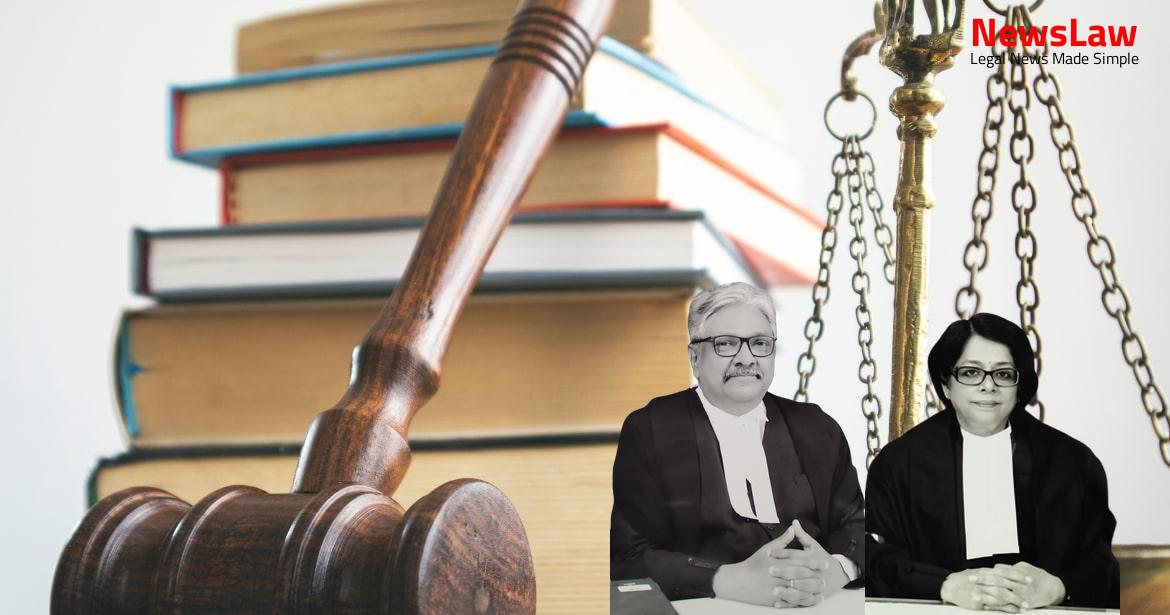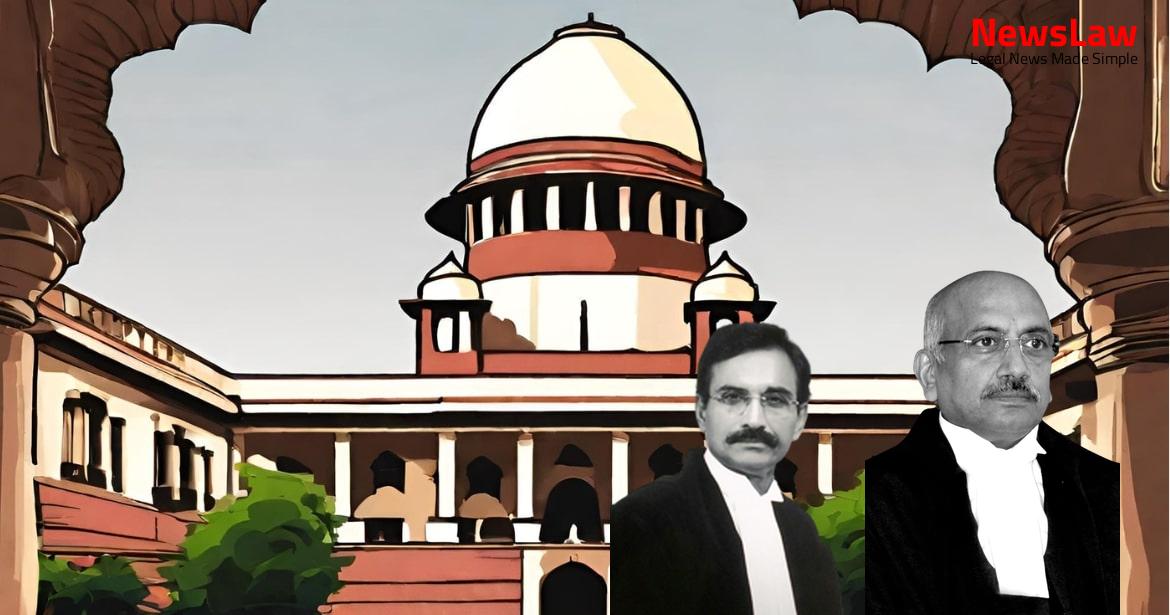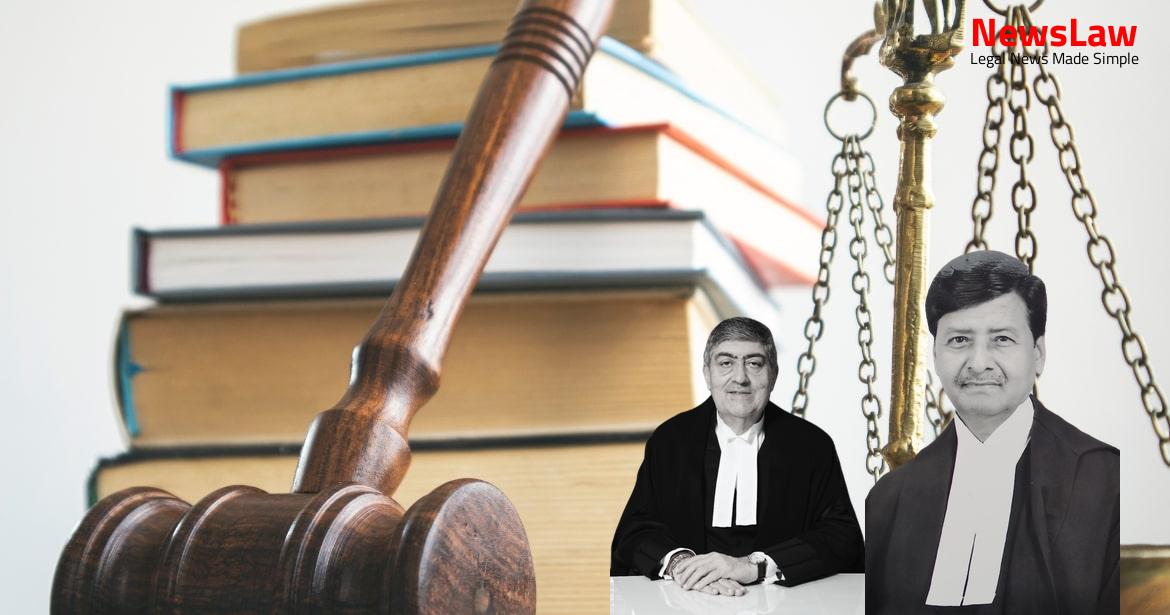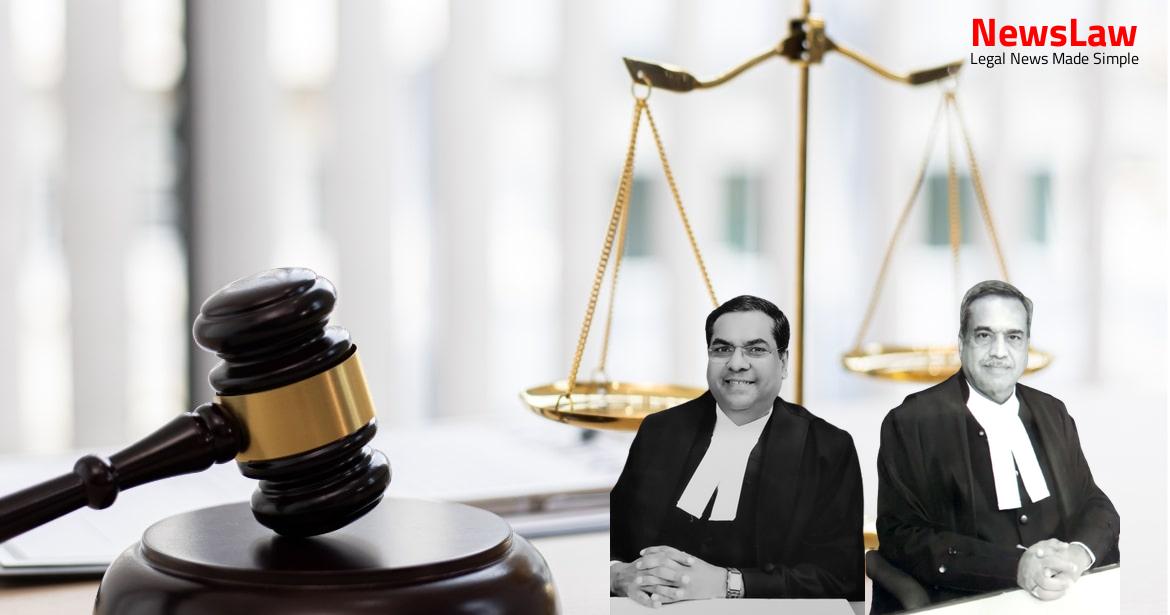In a recent legal case, the High Court delved into the intricacies of interpreting the statutory authority for nominations to the Board under the Nanded Act 1956. The court’s analysis focused on resolving conflicting claims and addressing the intervention of the State Government in the nominations process. Stay tuned to delve into the nuanced legal arguments and outcomes of this case.
Facts
- On 10 July 2000, the Revenue and Forest Department of the Government of Maharashtra superseded the Board constituted under Section 5 of the Nanded Act 1956 due to disputes between two factions of the Diwan, leading to the institution of proceedings before the High Court.
- The appointment of members to the Board under Section 6(1)(viii) led to conflicting claims and nominations, ultimately resulting in the State Government constituting an interim Board in 2014.
- The provisions of Section 6 regarding the composition and constitution of the Board were at the center of the controversy, with multiple nominations being made and internal disputes among factions arising.
- Letters and communications between the State Government, Charity Commissioner, and members of the Diwan were exchanged seeking clarification on authorized office bearers and nominations for the Board.
- The State Government eventually nominated four members to the Board under Section 6(1)(viii) on 21 June 2019 amidst the ongoing disputes and conflicting nominations.
- The issue of registration of the Diwan as a trust under the Maharashtra Public Trusts Act 1950 was also mentioned, with multiple Inquiry Applications and a final order for registration being issued in 1982.
- The summary highlights the ongoing disputes, nominations, and legal proceedings surrounding the composition and control of the Board under the Nanded Act 1956 involving various stakeholders and government entities.
- The High Court focused on the conflicting claims for nomination made to the government regarding the Diwan.
- It clarified that it was not addressing the issue of the President and the Secretary of the Diwan, but specifically considering the nomination of four members to the statutory Board.
- The Court mentioned that the dispute over membership could be resolved under the MPT Act.
- In response to the conflicting claims presented, the High Court decided to set aside the State Government’s notification.
- It ruled that the government is not authorized to nominate members representing the Diwan on the statutory Board as per clause (viii) of sub-Section (1) of Section 6, stating that only the Diwan has this authority.
Also Read: Legal Analysis on Arbitration Petition Limitation Period
Arguments
- In the petition before the High Court, the first respondent claimed the locus standi to challenge the appointment of members by the State Government.
- The petition raised concerns about a resolution dated 14 April 2015, stating that it was fabricated due to discrepancies in the mentioned date of expulsion.
- The appellants disputed the first respondent’s locus standi, asserting that he was removed from the post of trustee by Resolution No. 4 of the Working Committee on 14 April 2015.
- Inquiry Application No. 114 of 2019 initiated by Shersingh Hirasingh Fauji, claiming to be the elected President of the Diwan Trust, is also pending.
- The petition discussed the appointments and elections within the Trust, with specific mentions of Gurucharan Singh and S. Jivansingh Ayyasingh Sahu as Presidents.
- The change report filed by Gurucharan Singh on 9 November 2018 indicated the first respondent as an outgoing member of the Working Committee.
- Two Inquiry Applications pending before the Assistant Charity Commission with rival claims for the election of the President and Working Committee.
- Conflicting nominations by Gurucharan Singh and Shersingh Fauji recorded under ‘who nominated whom’.
- Contest regarding the validity of nominations made under Section 6(1)(viii).
- Issue of the last entry of the Working Committee recorded by the Assistant Charity Commissioner in 2002-4.
- Locus standi of the first respondent questioned by contesting respondents and raised as an afterthought.
- Challenge to the appellants’ plea regarding the management of the public trust.
- Filing of Miscellaneous Application 833 of 2011 by Gurucharan Singh after the recognition of the Trust registration’s finality.
- Status of members in the record maintained by the Assistant Charity Commissioner.
- Absence of change reports for elections of the President or Working Committee for various periods.
Also Read: Analysis of High Courts’ Jurisdiction and Court Orders Under Article 142
Analysis
- Committee carries out day to day administration of the Gurudwara under Section 37(I) as per Board directions
- Board responsible for maintaining, controlling, and administering Gurudwara and its endowments
- Board ensures income is used for intended purposes
- Vacancies in the Board filled through nomination or election based on the previous member’s selection method
- Two members elected from Sikh members of Parliament
- Committee of Management consists of various members including those nominated by the Board
- Management, control, and superintendence vested in the Board under Section 36(i)
- Nomination and election of members to be done as per prescribed rules and within specified period
- Rule-making power granted to the Government under Section 61(1)
- Funds of the Gurudwara can be spent on specified objects per Section 39
- Prescribed defined as rules made by the government or bye-laws made by the Board
- Election of President provided in Section 11
- Government can supersede the Board under Section 53 in case of default or abuse of powers
- The Court is tasked with interpreting Section 6(1)(viii) of the statute.
- The process of making nominations must be initiated and completed within three months from the date of the judgment.
- Enquiry applications must be concluded within three months by the Assistant Charity Commissioner.
- The members nominated by the State government during the pendency must continue as per an interim order.
- The authority to nominate members under Section 6(1)(viii) is vested in the Sachkhand Hazuri Khalsa Diwan, Nanded.
- The Diwan is a public trust governed by the MPT Act and was formed to protect and guide followers of the Sikh religion.
- The statute entrusts the authority to nominate four members to the Diwan collective body.
- Conflicts between rival factions have complicated the nominations process.
- The High Court disapproved of the State Government’s actions regarding nominations, as it was the power of the Diwan to nominate members.
- The power of nomination cannot be assumed by the State Government.
- Elections to the Working Committee are held every two years.
- The nominations and elections should comply with the rules and regulations of the statute.
- The nomination of four members under Section 6(1)(viii) is solely the prerogative of the Sachkhand Hazuri Khalsa Diwan, Nanded.
- Four members notified by the State Government may continue
- Subject to conditions in the interim order
- Request opposed by Ms. Vibha Dutta Makhija, Senior Counsel
Also Read: Electoral Malpractices in Mayor Election
Decision
- The Assistant Charity Commissioner, Nanded to fix a date for the Diwan meeting and act as an observer for finalizing nominations.
- The notification issued by the State Government on 21 June 2019 was deemed contrary to the Nanded Act 1956.
- Process of nomination under Section 6(1)(viii) to be completed within three months from the date of judgment.
- Pending applications to be disposed of, and members notified on 21 June 2019 cannot continue to function as an interim arrangement.
- Assistant Charity Commissioner to determine members entitled to vote at the meeting.
- Pending Inquiry Applications to be concluded within three months.
- Statutory authority for nomination under Section 6(1)(viii) entrusted to Sachkhand Hazuri Khalsa Diwan, Nanded.
- Notification dated 21 June 2019 declared invalid and High Court’s conclusion upheld.
- No costs awarded.
- Assistant Charity Commissioner authorized to use appropriate modalities for meetings, including virtual ones due to Covid-19.
- Assistant Charity Commissioner can move Aurangabad bench of Bombay High Court for further directions if needed.
Case Title: SARDAR BAHGINDER SINGH Vs. SARDAR MANJIEETH SINGH (2020 INSC 501)
Case Number: C.A. No.-002964-002964 / 2020



